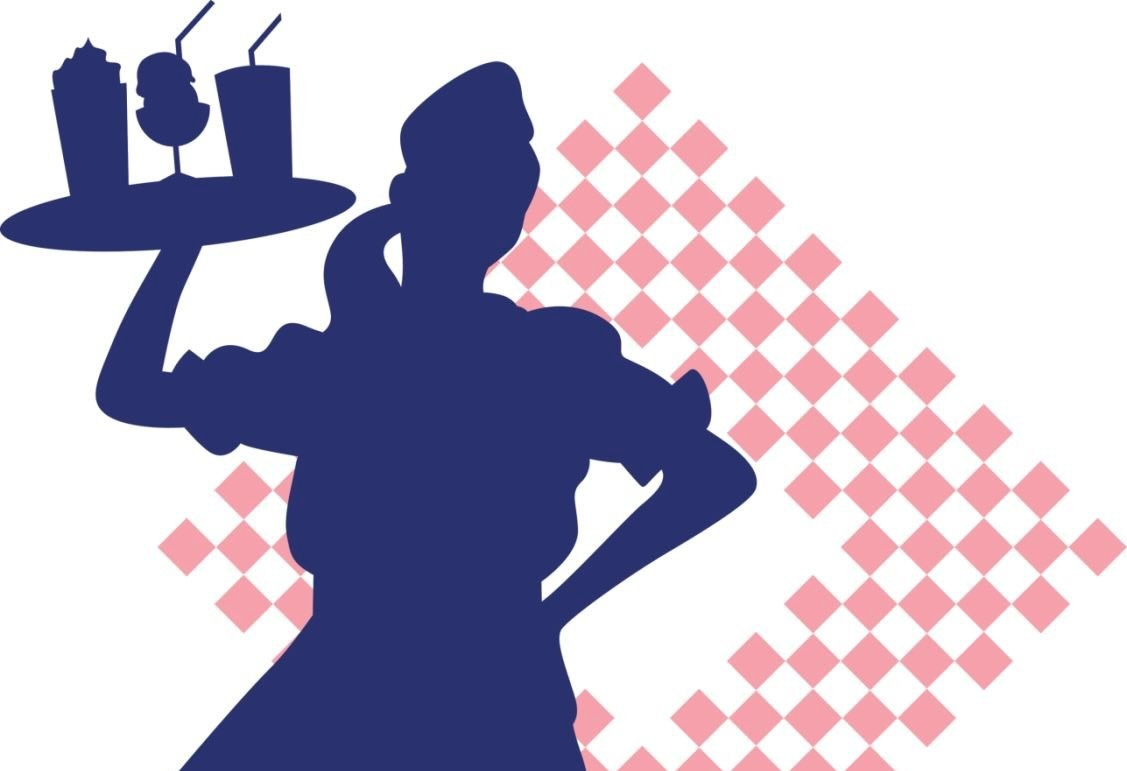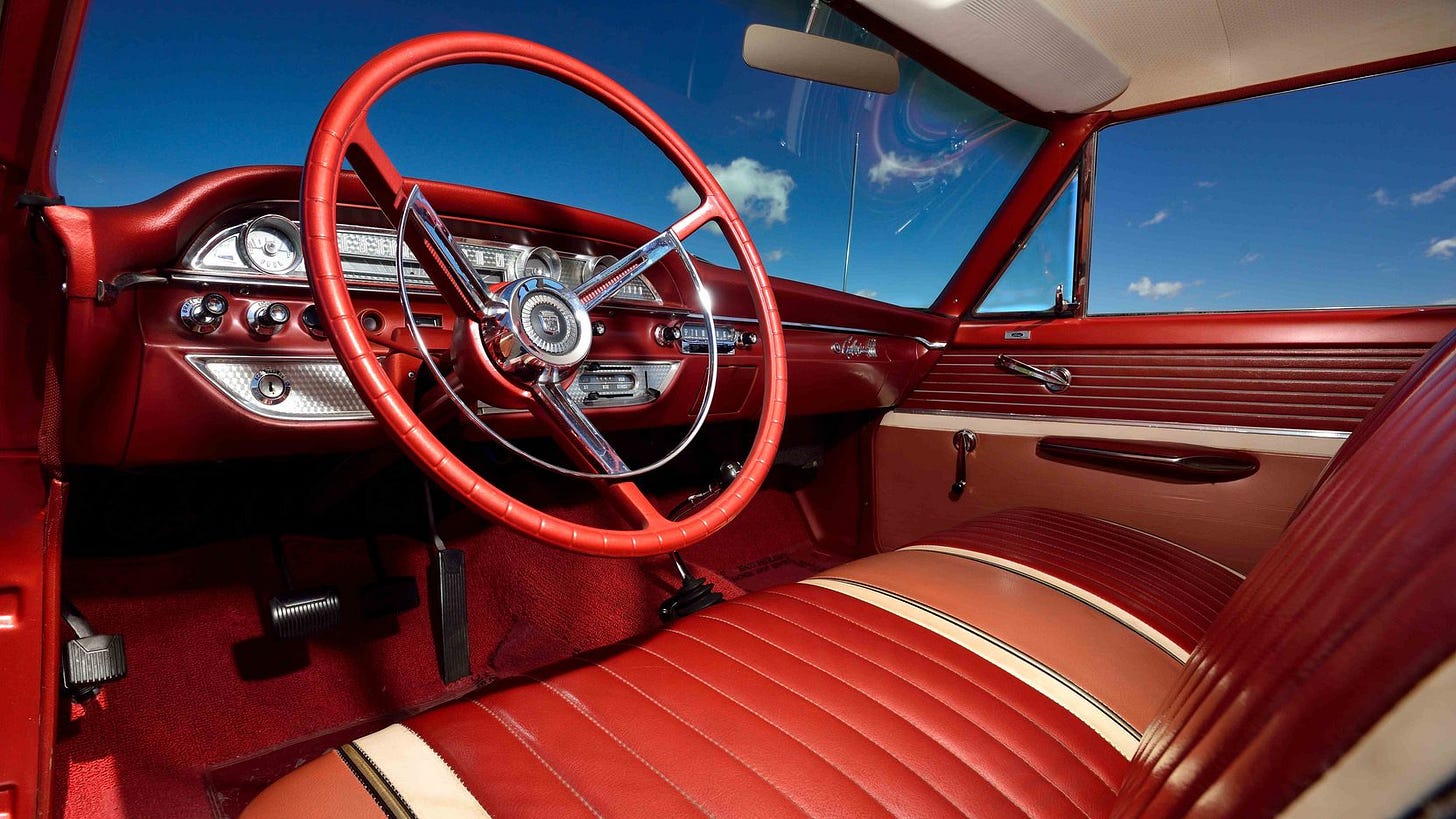The Blues & Billie Armstrong 28
KETCHUP STAINS & SUMMER DREAMS
Previously in The Blues & Billie Armstrong…
“Now, see—the man knows what he’s doing. He has a plan.” my father pointed his empty glass around the room, emphasizing his point to each of us in turn. “Give him a chance.”
Between school and work and baseball and her training to be a waitress, I’d hardly seen Billie for a couple days.
We hadn’t met at the window; she was gone too early in the morning and home too late at night. A few weeks before, Billie Armstrong was nothing but a rumor to me. Now I actually missed having her around to nudge me, joke me, guilt me, shock me into a larger view of everything, including myself, and especially my mother. And the pink lipstick envelope.
Saturday, after work, I headed for the Weeping Willow on foot. Off Main Street, I took Preacher’s Alley, a narrow sloping passageway between two buildings that was popular with local kids and loose dogs as an occasional hideout and shortcut to the park. We called it Preacher’s Alley because Reverend Jameson could sometimes be sighted there on his breaks, by the back door of the church smoking cigarettes (and, rumor had it, sipping from a flask kept somewhere in his vestments).
I shot straight through to where the passage dumped out on Parkview Avenue. It was a blue and soft May afternoon, ducks gabbling down at the lakeshore as I cut across the park’s lawns, over to Second Street and down to the Weeping Willow’s driveway. The two old oak trees guarding the entrance were leafed out green and the parking lot dominated by its usual combination of pickup trucks and Harley Davidsons. I cut through the game room, out to the big patio on the lake side and straight to the walkup window.
My grandmother Molly spotted me and called out my order without waiting. “One hot dog, plain, with nothing on it at all, just the bun and the dog.” She knew how I liked it.
“And a root beer,” I reminded her.
Billie brought my hot dog to the window in a little plastic basket, and the root beer in a waxy paper cup with sketchy illustrations of fishing and boating on the side. “I’m on break in ten minutes,” she said, checking the clock over her shoulder. “I got something to show you.” And she hustled away toward another task.
A breeze ruffled the surface of the lake and in the distance motorboats towed skiers across each other’s wakes and their engines whined like mosquitos. I carried my food out on the wooden pier that extended off the patio and over the water. At the far end of the pier was a wooden bench where I often sat to gaze out across the ever-shifting waters and contemplate my general adolescent befuddlement.
It was known as Molly’s Pier because my grandmother had famously fought so hard to get it built. When she and Pop first bought the Weeping Willow, they had plans to attach a gas dock to the pier, but the Lupoyoma City Council didn’t want any competition for the city-owned gas dock over at Library Park, where a fat cut of the revenue went straight into city coffers.
The councilmen unanimously denied her permit application, so Molly took the debate public, showing up at meetings to argue her case and accuse the council members of abusing their power, which got her picture in the paper a few times (her head barely reaching the microphone at the lectern). She eventually found an out-of-county lawyer who filed suit against the city of Lupoyoma under the public records laws, at which point the city backed down and Molly Medina got her pier, her gas dock, and the customers that came with it.
I finished my dog and drink, Billie came halfway out on the pier, waved for me to follow. She moved crisply in the pink uniform with the white trim and the white apron strings tied in a floppy bow at the back of her waist. When I caught up, she turned and smiled that big how-do-you-like-me-now smile, and she looked like a grown woman in that tight-fitting dress with the ketchup stains on the apron and the prissy white tennis shoes, all her red hair neatly tied back, revealing her full face with a hint of sweat on her forehead. She looked like an adult, like she might look in a few years, some flash-forward Billie playing by the rules and making her way in my Grandma Junia’s so-called real world.
“This is gonna blow your mind,” she said, and I followed her back through the game room and out to the parking lot, where she stopped next to a parked car. From the other direction, a man came walking—or rather, limping—toward us. He wore a buttoned up white shirt with dirty jeans and a white bib apron and paper hat shaped like Hank’s garrison cap. Billie introduced him as Sonny, the new cook, just hired, like her, and a “way-cool dude” who was looking to sell the dusty old Ford she was standing beside.
Sonny was tall with rust-brown skin, dark somber eyes, a clean-shaven, chiseled face, and frizzy black hair that hung down his back in a bushy pony tail. He shook my hand and said, “Heard a lot about you, kid.” I assumed he meant from Billie, although maybe Molly as well, and I instantly had the hope that he’d heard good things from whoever. He had a strong handshake and a deep thoughtful voice, and even in that cook’s getup with the paper hat and the slight limp, a natural calm and a manly presence that left a boy wanting his approval.
He tossed a keychain to Billie, underhand like a shortstop starting a slick double play. “You got fifteen minutes.” He checked his watch. “And I ain’t going no lower on the price.”
The car was a 62 Ford Fairlane 500. Dull white body paint, a little chrome here and there and a few minor dings. But the interior was pristine, all of it decked out in bright red—the vinyl upholstery, the door panels, the low-pile carpet, the metal dash, the big round Bakelite steering wheel, even the foldout ashtray. “Three on the tree with a 283,” Sonny said. “I bought it a couple years ago for a trip I never got to take. And I have the Harley now, so…”
The test drive was really for me. Billie had already driven the car and sugar-talked Sonny down to three hundred bucks, but he wanted half down before he would sign the pink slip, and it was going to take her a while to get that kind of money together. Still, in her mind it was a done deal and a promise of freedom to come. “Key to the highway, man—no hassles, no parents, no cops. San Francisco, the redwoods, the ocean, anywhere we want to go…”
She drove carefully but talked recklessly in her lickety-split rhythm, taking sudden detours for stories of her new worklife, complete with impersonations of the horny old fishermen and the horny young waterski dudes who showed up at the cafe, and fantasies about other faraway destinations—Yosemite, Haight-Ashbury, Candlestick Park.
“We still need to go back to Frankie's.” I said. “And soon.”
“Yeah, for sure, but no way I’m thumbing out there again. I can pay for the car in a few weeks and you’ll be out of school by then. We’ll ride out there in style, man. You’ll see.”
Back at the Weeping Willow, Sonny the cook came out to the parking lot and Billie gave him the keys. “I better get back to work,” she said.
“Didn’t you once tell me work was for suckers?”
“I said jobs were for suckers, not work. Jobs, careers, the so-called American Dream. They tie you down with rules and labels and shrink your world, man. But this is just something I need to do if I want to leave this place on my own terms and not have to look over my shoulder. I can play the game for a while, wear the costume, I mean, check me out, right?” She smiled a fake smile and mimed a pen and an order pad. “More coffee, sir? How would you like your eggs? Could you kindly remove your hand from my ass?”
I pretended a chuckle.
“It’s really not that bad,” she said. “Molly’s super cool for an old lady, you know. And Sonny looks out for me with the jerks. Anyway, all I have to do is make it through the summer, get to my birthday, and then I’m free. Meanwhile, it’s gonna be one helluva summer, man.” She pointed at me like it was guaranteed and sashayed away humming the tune to Key to the Highway, patting out the rhythm with a hand on her thigh.
Billie Armstrong, tamed? Billie Armstrong, surrendered? No, I knew that uniform—or any other—would always be too tight on her. But there was something different about her that day, something changed, sharpened, something beyond the uniform—a new aura of competence and intent, the stride of someone who could see the path ahead.
As Grandma Junia would say, she walked like she had a purpose in life. But it felt like she might be walking away from me.
The Blues & Billie Armstrong is a work of fiction. Names, characters, businesses, places, events and incidents in this book are either the product of the author's imagination or used in a fictitious manner. Any resemblance of the fictional characters to actual persons, living or dead, is purely coincidental.
© All Rights Reserved



